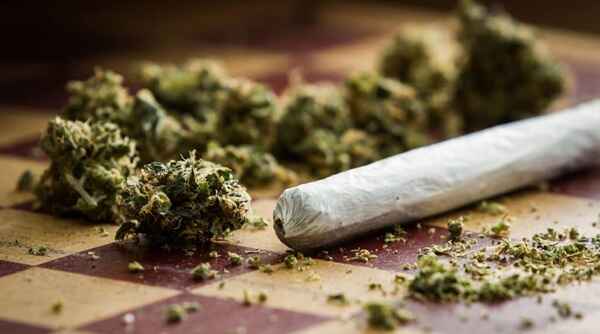Marijuana laws in Texas have long been a subject of debate and confusion. While many U.S. states have legalized cannabis for medical and recreational use, Texas has taken a much more cautious approach. As of 2025, the question “Is weed legal in Texas?” remains one of the most frequently asked by residents and visitors alike.
The short answer: Recreational marijuana is still illegal in Texas. However, the state has expanded its medical marijuana program and continues to review regulations surrounding hemp-derived products such as Delta-8 and Delta-9 THC. Let’s break down the current status, laws, and possible future changes.
The Current Legal Status of Weed in Texas

Under Texas state law, marijuana (defined as cannabis containing more than 0.3% THC) remains illegal for recreational use. The Texas Health and Safety Code continues to classify possession, sale, and use of marijuana as a criminal offense.
At the federal level, marijuana is still listed as a Schedule I controlled substance, which means it is considered to have a high potential for abuse and no accepted medical use under federal law.
That said, Texas does allow limited medical use through its Compassionate Use Program (CUP), which permits low-THC cannabis for patients with certain qualifying medical conditions.
What Is Legal: Medical Marijuana in Texas
The Texas Compassionate Use Act, passed in 2015, initially allowed the use of low-THC cannabis oil for patients with severe epilepsy. Since then, lawmakers have expanded the program to cover more medical conditions, including:
- Post-traumatic stress disorder (PTSD)
- Cancer
- Epilepsy and seizure disorders
- Multiple sclerosis
- Autism
- Chronic pain (added in 2025 legislative expansion)
Under this program, registered physicians can prescribe low-THC cannabis products containing no more than 10 milligrams of THC per dose. Patients cannot legally smoke marijuana; instead, it must be consumed as oils, tinctures, capsules, or inhalers.
This controlled expansion reflects Texas’s cautious approach — recognizing potential medical benefits without opening the door to full recreational legalization.
Hemp-Derived THC Products: The Grey Area
In 2019, Texas legalized industrial hemp through House Bill 1325, defining hemp as cannabis containing 0.3% THC or less. This opened the door for products like CBD oils, Delta-8 THC, and Delta-9 THC gummies made from hemp.
However, this quickly became a legal grey zone, as some of these products mimic the psychoactive effects of marijuana. In 2025, lawmakers attempted to ban consumable hemp products that contain intoxicating cannabinoids through Senate Bill 3, but Governor Greg Abbott vetoed the measure.
This means that, as of now, hemp-derived THC products remain legal, though future sessions may introduce stricter regulation or outright bans.
Penalties for Marijuana Possession in Texas
Despite national trends, Texas continues to enforce strict penalties for marijuana possession:
- Possessing less than 2 ounces: Class B misdemeanor; punishable by up to 180 days in jail and a $2,000 fine.
- Possessing 2–4 ounces: Class A misdemeanor; up to 1 year in jail and a $4,000 fine.
- More than 4 ounces: Felony charges with potential prison time.
Some Texas cities, like Austin and San Marcos, have attempted to decriminalize low-level possession, but the state attorney general has challenged these local ordinances, arguing that state law pre-empts city decisions.
The Future of Weed Legalization in Texas
While recreational marijuana remains illegal, public opinion and legislative efforts suggest gradual change. A few key developments to watch:
- Expansion of the medical program: Lawmakers continue to broaden eligibility and increase permissible THC levels.
- Hemp regulation debates: The veto of Senate Bill 3 may prompt more detailed future legislation to clarify THC product limits.
- Decriminalization efforts: More local governments are pushing for reduced penalties or citation-only enforcement.
- Potential 2027 ballot initiatives: Advocacy groups are preparing to push for broader reform in upcoming legislative sessions.
Though full recreational legalization seems unlikely in the immediate future, Texas is slowly evolving toward a more regulated cannabis framework.
What Texans Should Know
If you live in or plan to visit Texas, here are the key takeaways:
- Recreational marijuana is illegal. Possession can still result in criminal charges.
- Medical marijuana is legal only under the Compassionate Use Program with a valid prescription.
- Hemp and CBD products are legal but must contain 0.3% THC or less.
- Delta-8 and Delta-9 THC products from hemp remain temporarily legal but could face tighter regulation soon.
- Always verify whether a product is lab-tested and compliant with state THC limits.
Conclusion
As of 2025, weed is not legal in Texas for recreational use. However, the state has made meaningful progress in expanding its medical marijuana program and clarifying hemp regulations. Texans should expect further debates in the coming years, but for now, anyone possessing or using marijuana outside the medical framework is still breaking state law.
To stay compliant, always verify updates through the Texas Department of Public Safety (DPS) or consult a licensed attorney before using any THC-based product.
